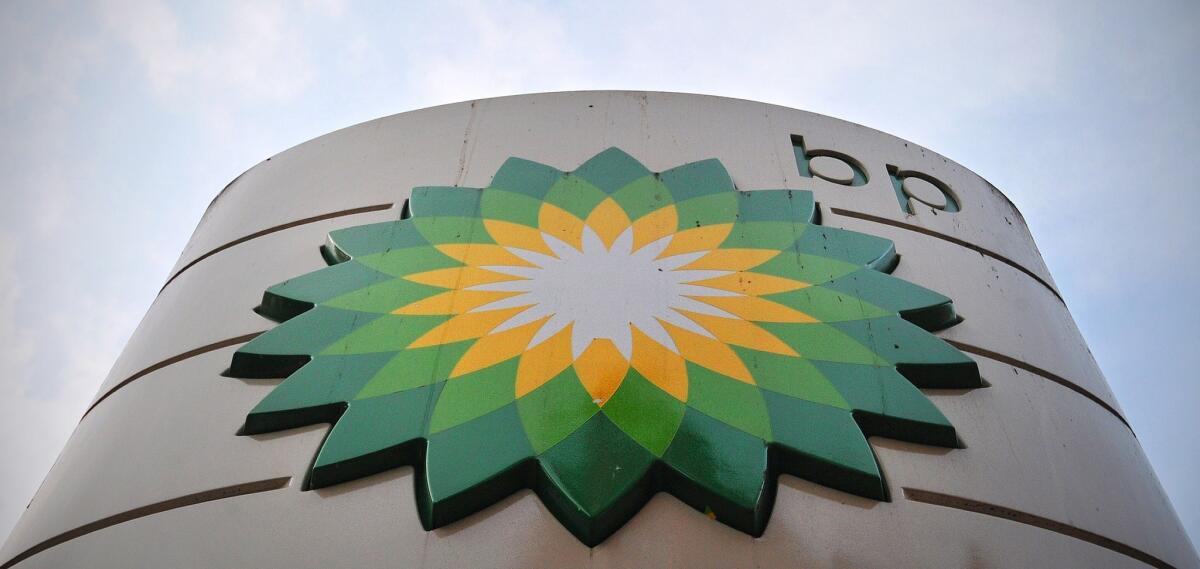BP’s bold goal: Eliminate or offset its carbon emissions

BP’s new boss set out the boldest climate goal of any major oil company, pledging Wednesday to eliminate almost all of the carbon emissions from BP operations and the fuel it sells to customers.
Bernard Looney, who has been the company’s chief executive for just a week, set an ambitious agenda for what’s becoming an existential challenge for the oil industry. While peers such as Royal Dutch Shell, Total and Equinor have responded to investor pressure by adopting targets for emissions curbs, none has promised to zero out all emissions from the fossil fuels they pump from the ground.
Looney, without detailing how it would be accomplished, said BP will do that by 2050.
“The world’s carbon budget is finite and running out fast; we need a rapid transition to net zero,” Looney said in a statement. “We have got to change — and change profoundly.”
Only Spain’s Repsol, a smaller refiner and energy producer, has gone further: It has pledged to fully eliminate “Scope 3” emissions, which include fuel it buys from third parties and sells to consumers.
Looney struck a confident tone, but he faces an enormous task. The London-based company’s new chief executive didn’t have detailed answers to questions about how to eliminate carbon from one of the world’s largest oil companies; BP tapped the first fields in Iran in the early 20th century and drilled wildcat wells on the Alaskan frontier more than 60 years ago.
“I appreciate you want more than a vision — you want to see milestones, near-term targets, some ways to measure progress,” Looney said in a question-and-answer page on BP’s website. “We do not have those for you right now,” but the company will announce more measures in September, he said.
U.S.-traded shares of BP rose 1.7% on Wednesday.
Radical change
For BP to survive the energy transition in a world that’s gradually falling out of love with oil, it will need to make big investments in new sources of clean energy, ensure cash keeps flowing from its fossil fuel assets and also funnel generous returns to investors. It’s a tricky balancing act that its closest peer, Shell, is already struggling to master.
BP’s commitment to do all this while still boosting free cash flow and shareholder returns is “really the key challenge,” RBC Capital Markets analyst Biraj Borkhataria said.
As Looney presented his strategy in London, he said BP will remain an oil and gas business “for a very long time,” while also acknowledging that production will decline in the long term. He said that whatever is pumped in 2050 “will have to be de-carbonized” and that he’s a big believer in the viability of the technology to capture and store carbon dioxide emissions.
BP also announced structural changes alongside its emissions target. Looney will dismantle its upstream and downstream businesses and reorganize them into an entity made up of 11 new teams that will be more integrated and focused.
“The statement represents a step change in terms of vision for the company and one that moves the group toward the biggest reorganization and modernization in at least two decades, if not a century,” analysts at Barclays Bank said in a note. “The magnitude and radical nature of this shift should not be underestimated.”
Targeting Scope 3 emissions is a big step for an industry that produces the bulk of the world’s planet-warming emissions. To fulfill the pledge, Looney or one of his successors may one day face a hard reckoning — either shift energy production to renewables, invent commercially viable technology to store the carbon emitted from burning oil and gas, or stick with fossil fuels and accept that production will have to drop.
BP’s own operations emit the equivalent of about 55 million tons a year of carbon dioxide, while the oil and gas it pumps from the ground emits an additional 360 million tons, the company said. Looney plans to eliminate both those sets of emissions on a net basis by 2050.
“This is what we mean by making BP net zero,” Looney said. “It directly addresses all the carbon we get out of the ground as well as all the greenhouse gases we emit from our operations. These will be absolute reductions, which is what the world needs.”
BP also aims to reduce by half the carbon intensity of the products it markets — crude and fuels it purchases from other companies and sells to its customers — by offering people more choice of low- and no-carbon products. BP’s own upstream operations produced 1.14 million barrels a day of liquids in 2018, but it actually refined 1.7 million a day and its total sales to consumers were 2.74 million barrels a day, according to its annual report.
Transatlantic divide
BP’s move increases the divide between oil companies on either side of the Atlantic. The European majors are heeding societal and investor pressures to drastically reduce their carbon footprints. Pledges from their American counterparts ExxonMobil Corp. and Chevron Corp. are more modest, focusing on reducing methane emissions and more generally aligning themselves with the Paris climate agreement.
In the early 2000s, the company rebranded itself as “Beyond Petroleum” under another visionary chief executive, John Browne. But big investments in solar power largely failed. In one of his last interviews before leaving office, Looney’s predecessor Bob Dudley warned against Big Oil moving too fast on new technologies to counter climate change, because their failure could lead to financial ruin.
However, circumstances are changing. Refraining from becoming greener is no longer a choice for the world’s largest polluters.
The damaging effects of rising global temperatures are increasingly evident, and established investors are starting to worry about the vulnerability of their portfolios to a climate crisis. It was among the most debated subjects at this year’s World Economic Forum in Davos, Switzerland. Last month, BlackRock Inc. added its significant weight to a $41-trillion investor group that’s pressing the biggest emitters to change their ways.
The Church of England Commissioners, one of the activist investors that has been pressuring Big Oil, praised BP’s move. “This is the ambition that the world needs,” Edward Mason, head of responsible investment, said in a tweet.
More to Read
Inside the business of entertainment
The Wide Shot brings you news, analysis and insights on everything from streaming wars to production — and what it all means for the future.
You may occasionally receive promotional content from the Los Angeles Times.










